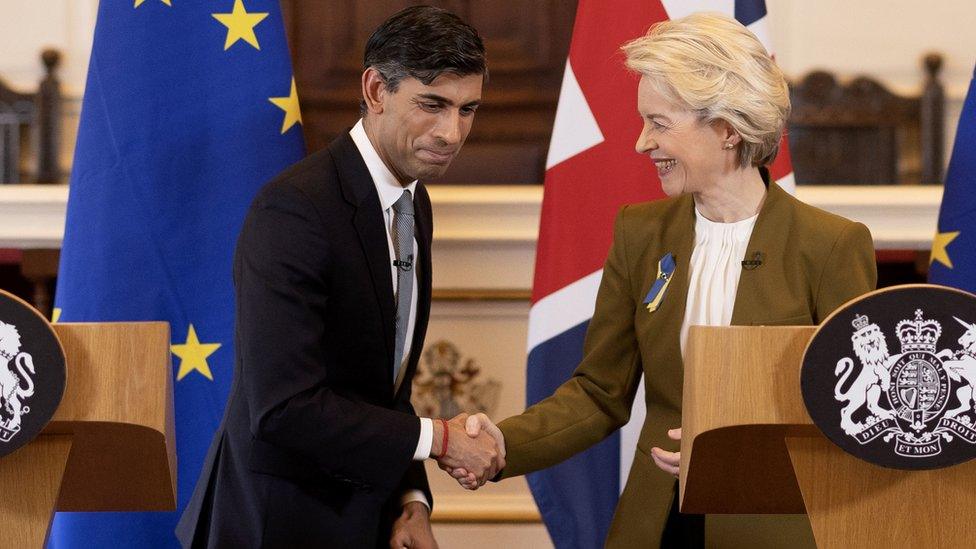Stormont deadlock: Government-DUP talks in 'final, final stages'
- Published
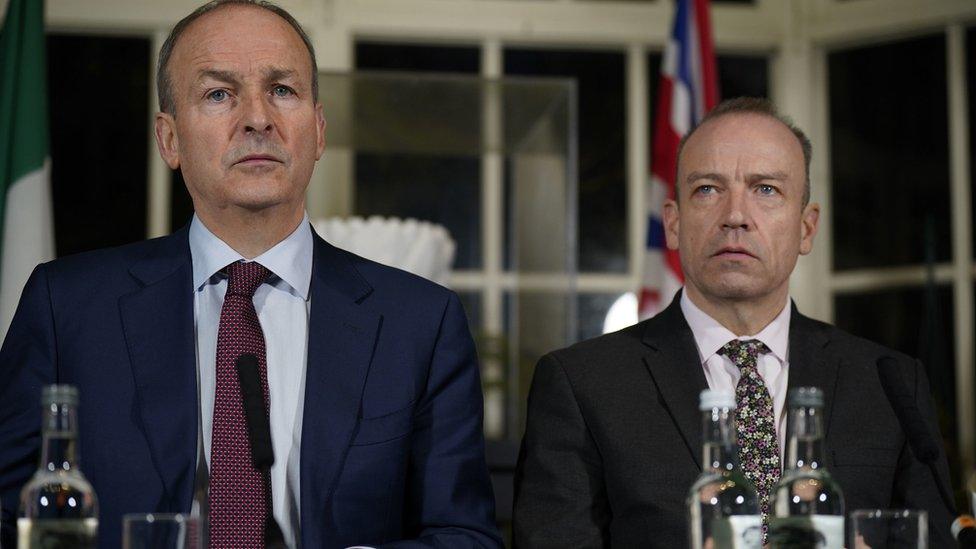
Micheál Martin and Chris Heaton-Harris led delegations at the British-Irish Intergovernmental Conference
Government talks with the Democratic Unionist Party (DUP) on restoring Stormont are in the "final, final stages", the Northern Ireland secretary has said.
But Chris Heaton-Harris said he was "not going to set a timeline" on ending the deadlock.
He was speaking as ministers met in Dublin for the latest British-Irish Intergovernmental Conference (BIIGC).
The DUP has been blocking Stormont power-sharing since February 2022.
It has been protesting against post-Brexit trade arrangements between Northern Ireland and Great Britain.
The Windsor Framework was struck by the UK government and EU earlier this year in an effort to address concerns with rules under the Northern Ireland Protocol.
But the DUP wants further legal assurances of Northern Ireland's place within the UK internal market.
No set timetable
Mr Heaton-Harris said there were an "ever-diminishing number of questions that we have to answer from the DUP".
He said the British government was "working very hard" to ensure Stormont was "back as soon as possible".
"But I'm not going to set a timeline to it," he added.
"We are in the final stages. I could go further - I could say we are in the final, final stages of this.
"We are really working hard to try to close this down."
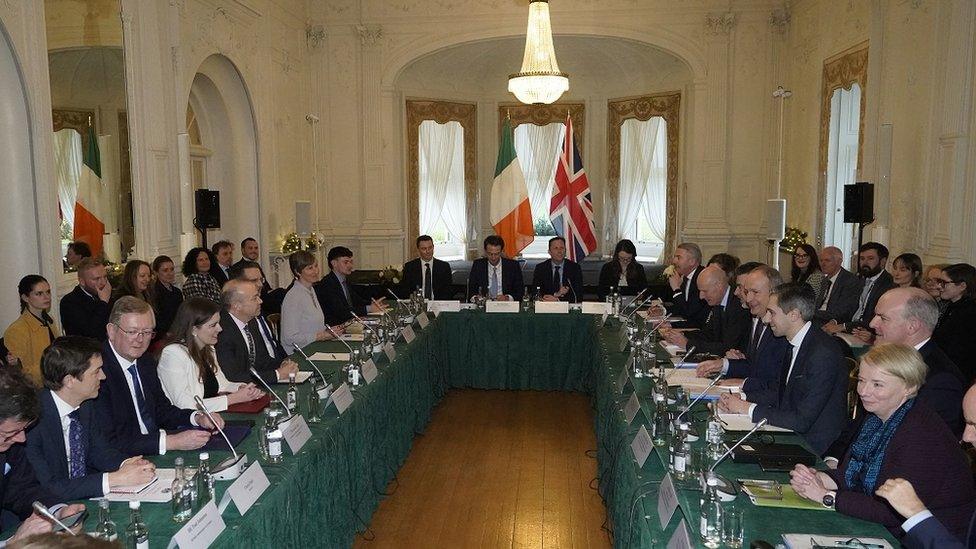
The British-Irish Intergovernmental Conference met at Farmleigh House in Dublin
Tánaiste (Irish Deputy Prime Minister) Micheál Martin said it was extremely important to restore Stormont's devolved institutions.
"The absence of institutions damage politics, damage democracy," he added.
The BIIGC was set up following the 1998 Good Friday Agreement and meets twice a year.
It was the first formal opportunity for British and Irish ministers to discuss the government's controversial Troubles legacy act, which became law in September.
The legislation offers a conditional amnesty to those accused of killings during 30 years of violence known as the Troubles.
It will also stop any new Troubles-era court cases and inquests being held.
The Irish government has repeatedly criticised the legislation, but has not yet decided whether it will challenge the act through legal action.
Mr Martin said the Irish government had received legal advice from the attorney general.
"We're conscious of timelines in respect of the court, so we will be making a decision in advance of those timelines," he said.
"We have, as a government, set a process in place whereby we'll convene to give this serious consideration and discuss it."
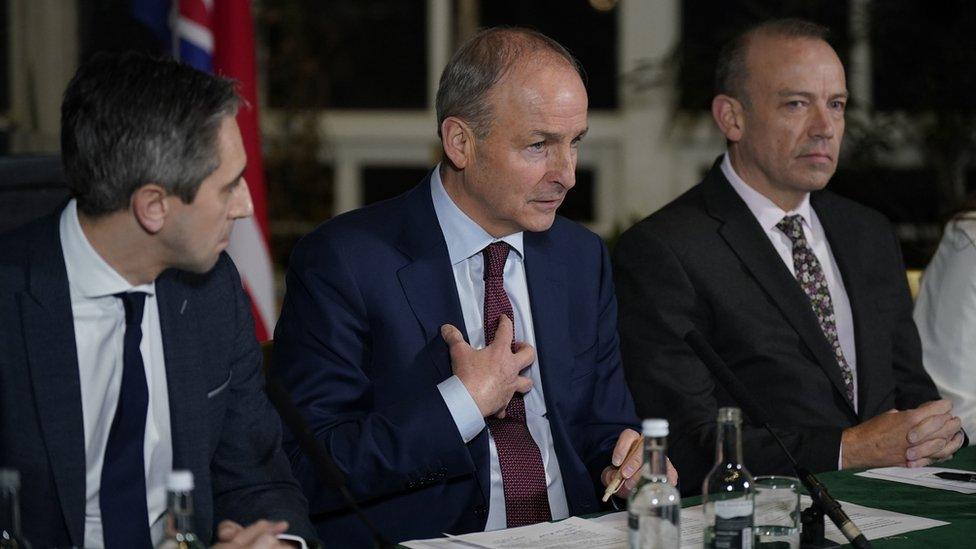
Micheál Martin reiterated the Irish government's opposition to UK Troubles legislation
The meeting came days after a riot broke out in Dublin following a knife attack, which saw three children and a school worker injured outside a school.
Mr Martin said he had "absolute confidence" in Justice Minister Helen McEntee, who has faced criticism for her handling of Thursday's events.
The BIIGC involved the announcement of a joint UK and Ireland investment of more than £60m to create two new science research centres to look at climate change.
UK Science and Technology Secretary Michelle Donelan, who attended on her first ministerial trip to Ireland, said the project would "stimulate cross-border research and collaboration".
She said the centres would be launched in January 2024.
Irish Education Minister Simon Harris said the project was a "significant step forward for cooperating and collaborating north, south, east and west".
- Published17 October 2023
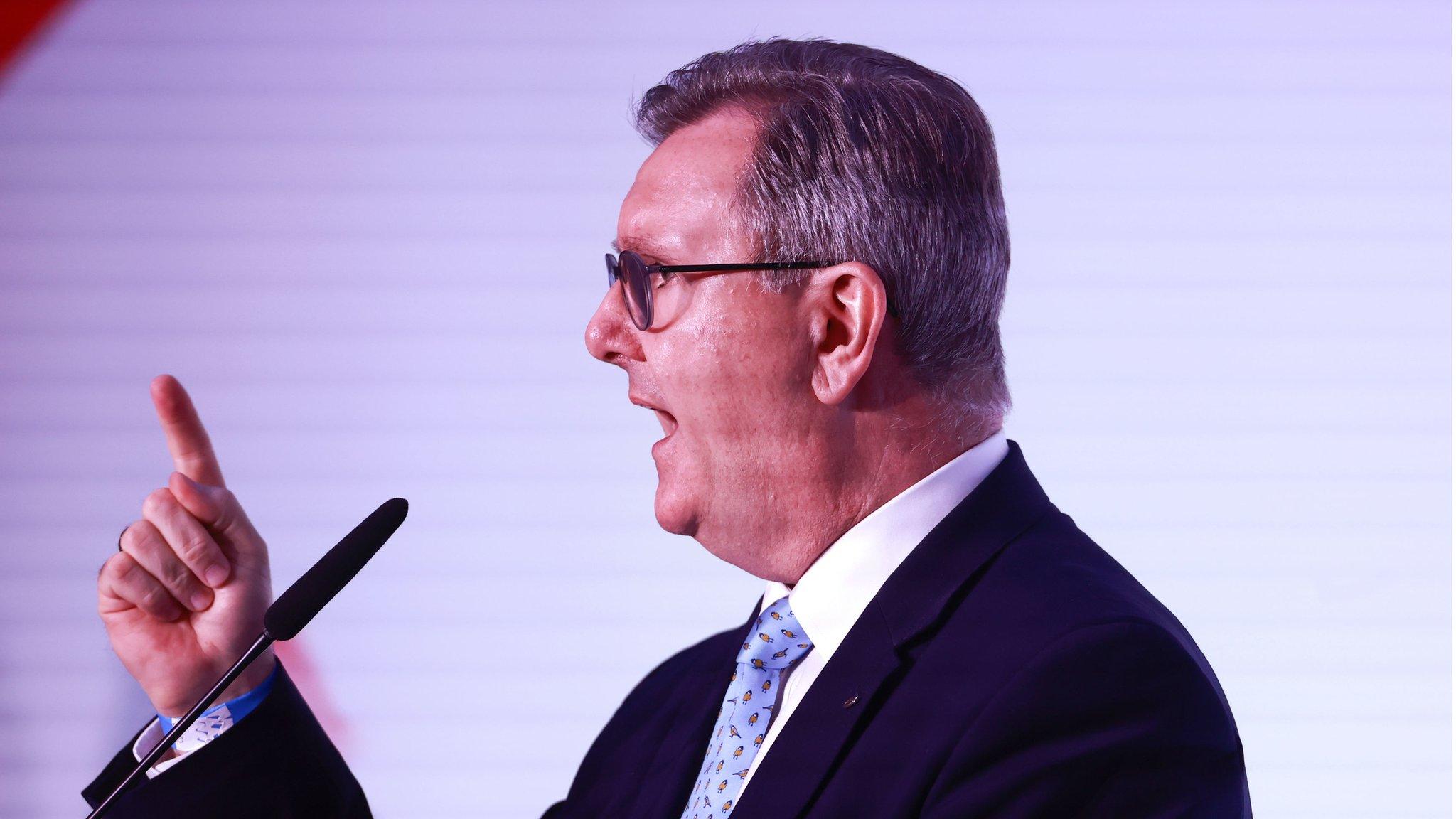
- Published8 October 2023
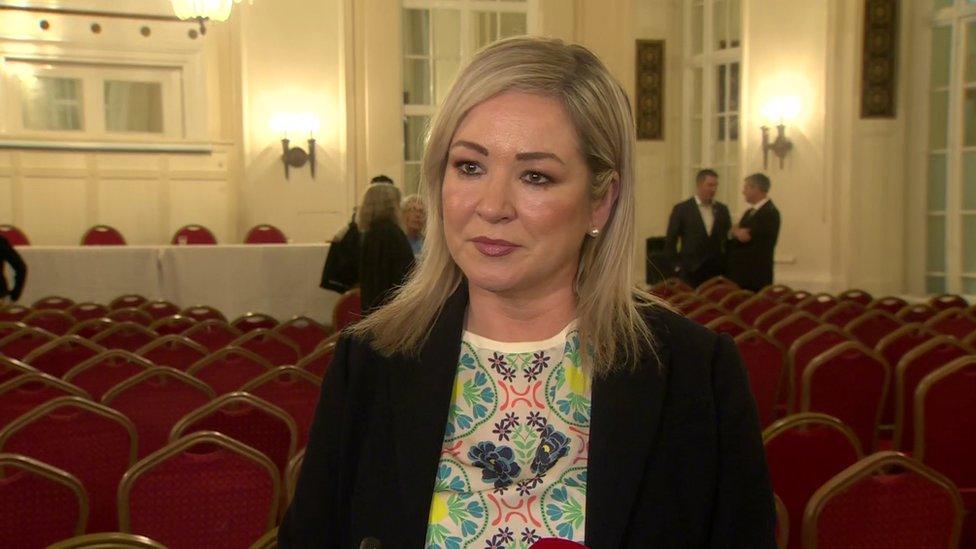
- Published1 October 2023
